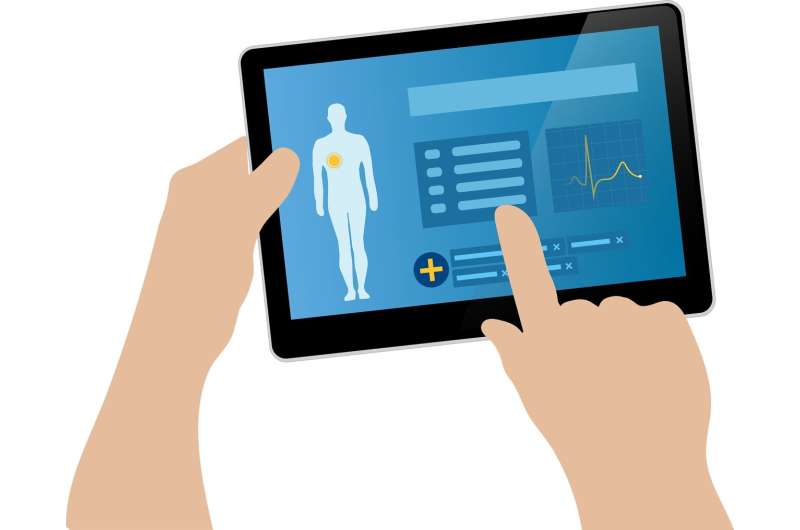This article has been reviewed according to Science X's editorial process and policies. Editors have highlighted the following attributes while ensuring the content's credibility:
fact-checked
trusted source
proofread
Appropriate statin prescriptions found to increase with automated referral

The odds of prescribing the appropriate dose of statins—a medicine used to lower "bad" cholesterol levels—increased sixfold when automated referrals were made to pharmacy services, instead of relying on traditional prescribing methods, according to researchers at the Perelman School of Medicine at the University of Pennsylvania.
More than 90 million people in the U.S. use statins, making it one of the most prescribed medications in the county. Despite their effectiveness in lowering cholesterol levels and the risk of cardiovascular diseases, previous studies have highlighted suboptimal prescribing trends.
Typically, a doctor assesses a patient's cardiovascular risk and determines whether a statin is needed, and at what dose. One reason for the under-prescription of statins is that clinicians often do not have adequate time in the office to attend to patients' preventive care needs.
A workflow that automatically identifies patients who should be treated with a statin but are not, or are treated with too low a dose, and refers those patients to a pharmacist for initiation of appropriate statin therapy is a promising way to ensure that cholesterol management is not overlooked.
Alexander C. Fanaroff, MD, MHS, an assistant professor of Cardiovascular Medicine, shared details of the clinical trial in a late-breaking science presentation today at the American Heart Association's Scientific Sessions conference in Philadelphia, Pennsylvania (Abstract #23096).
The work of Fanaroff and his colleagues aimed to address the underutilization of statin therapy in U.S. adults who are candidates for such treatment. A large proportion of adults with or at high risk for cardiovascular disease do not receive statins at the recommended dose.
To bridge this gap, the research team conducted a cluster randomized clinical trial as part of the Penn Medicine Atherosclerotic Cardiovascular Disease Risk Reduction Initiative. The trial enrolled patients from ten primary care practices affiliated with the Penn Medicine Lancaster General Health System and explored the effects of automated referrals of eligible patients—those not already prescribed statins by a clinician— to a centralized pharmacy service.
Pharmacists subsequently contacted appropriate patients, discussed their personalized risks and the benefits of statin initiation, and initiated therapy when appropriate. The primary goal was to assess the proportion of patients prescribed statins, and secondary outcomes included the proportion of prescribed statins at guideline-recommended doses.
A total of 1,950 eligible patients were enrolled in the trial, with 975 assigned to the intervention arm—the automated referral group. The study revealed that 86.4 percent of eligible patients were not prescribed statins at all at baseline, and the rest were given inappropriately low doses. Patients in the intervention arm practices saw a significant increase in statin prescription rates, with 31.6 percent prescribed a statin, compared with 15.2 percent in usual care practices.
Additionally, 24.8 percent of patients at intervention arm practices were prescribed a statin at the guideline-recommended dose during the study period, compared with 7.7 percent of patients at usual care practices.
"The findings suggest that automated referrals to centralized pharmacy services for lipid management are a game-changing strategy, drastically improving the odds of prescribing appropriate dose statins," said Fanaroff.




















